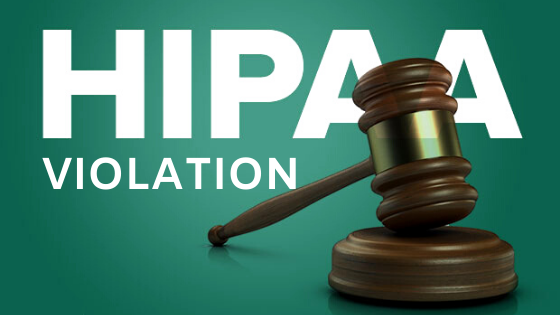A HIPAA violation can mean serious consequences to you and your business. This is because HIPAA defines a wide variety of healthcare-related information, which is defined as “protected health information.” If you choose to be uninsured, this is protected by the act. The act also gives businesses the right to protect their information, especially from hackers and identity thieves.
An HMA violation is defined as the unauthorized use of a healthcare organization’s information to collect information for yourself or another person. There are other cases when the disclosure of the information is considered illegal and not acceptable. These include selling medical information, transmitting the information through electronic means, and accessing medical information to commit crimes.
A HIPAA violation also can result in a legal suit if you violate the privacy of the medical record that includes any non-public information, such as financial data, name, or other personal information. For instance, if you sell something that was recorded in your medical records to someone else, the individual cannot use it to make a purchase. This is also true for another case when your name, credit card number, and social security number are disclosed to someone else and they then use it without authorization.
HIPAA violations are punishable by fines and/or imprisonment. These penalties are imposed for offenses that are performed knowingly or with disregard for the protection of privacy. Some situations where HIPAA violations occur include medical billing discrepancies; medical devices that are misused; illegal sharing of medical information; transferring medical information, including patients’ medical records, without authorization; providing incorrect information to obtain a loan; and HIPAA violation resulting in the death of a patient. Penalties can be imposed for a violation committed on behalf of a business organization, including financial fraud, making a false statement on a contract, taking physical possession of the patient’s property, as well as violating the confidentiality of a covered entity. Another HIPAA violation will also result in a restriction on the marketing of products and/or services that have been distributed for at least 6 months.
Also, a HIPAA violation is an ethical violation. This means you cannot use the protected health information of your patients for your gain. HIPAA violations must be reported immediately if you believe your organization is not complying with the law.
Also, it is important to remember that companies cannot take advantage of the patient’s financial activities for their benefit. You are the one who is bound by law to protect the patient’s financial information from being misused, and these restrictions are enforced through penalties.
HIPAA violation also must be reported to the Attorney General’s office. They will inform you about the violation, prescribe what to do next, and investigate further. The act requires you to file a complaint immediately.
When filing a complaint against a medical care organization, you need to make sure that you follow the proper procedures and follow HIPAA standards. These can be found in all the state regulations.
The office of the Attorney General’s office will investigate and will either conduct an administrative or criminal investigation. A civil action can also be taken against the offending party.
HIPAA violations, especially ones caused by negligence, can result in lawsuits. These lawsuits will consist of damages and punitive damages for breach of contract, the loss of a patient’s privacy, and the violation of the patient’s rights. While HIPAA violations are quite serious, there are several ways to get rid of them.
